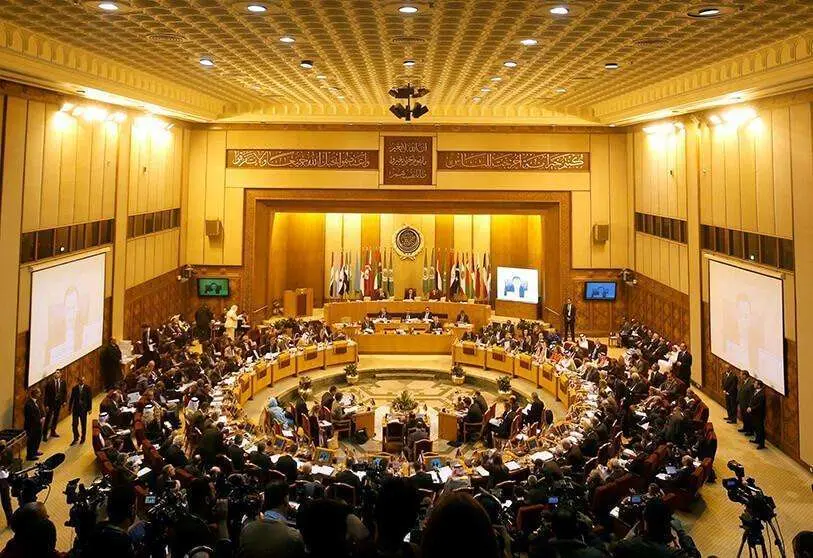La Liga Árabe condena la injerencia iraní en la cuestión del Sáhara

The Egyptian capital of Cairo hosted on Wednesday the summit of the Council of the League of Arab States at the level of Foreign Ministers, in a meeting in which all member countries agreed to support a resolution proposed by the Ministerial Committee of the Arab Quartet. In the document, the committee chaired by Saudi Arabia and made up of Bahrain, Egypt, the United Arab Emirates, Saudi Arabia and the organisation's secretary general, the Egyptian Ahmed Aboul Gheit, condemned the interference of Tehran and the related armed group Hezbollah in the Sahara issue.
The Ministerial Committee of the Arab Quartet was intended to monitor the troubled diplomatic relations between Rabat and Tehran. These relations came to an end when, in May 2018, Moroccan Foreign Minister Nasser Bourita claimed to have "evidence and data" of the involvement of Iranian diplomats in Algeria as "facilitators" between Hezbollah and the Polisario Front in "urban guerrilla actions and attacks against the Kingdom of Morocco".

The resolution adopted by the Arab League Council called for solidarity with Rabat in the face of Iranian and Hezbollah interference in matters relating to the Saharawi territory. Especially in the arming and training of members of the separatist Polisario Front group who "seek to undermine the territorial integrity, security and stability" of the Alawite Kingdom.
"These dangerous and unacceptable practices are an extension of the Iranian regime's actions aimed at undermining regional security and stability," the Ministerial Committee's document stated.
Algerian-born journalist and political analyst Oualid Kebir told Morocco World News that the resolution was "a painful blow to the military regime". According to Kebir, Algiers has made many significant concessions in order to ensure that the next summit of the League of Arab States - scheduled for 1 and 2 November - will be held in the Algerian capital. Among these concessions would be "clearly, the Arab League Council's declarations, which show full support for Morocco's territorial integrity", the journalist said. These declarations would conflict with the Algerian position in favour of the independence of the Sahrawi territory and in support of the Polisario Front.

In this sense, the favourable vote of the foreign ministers will allow Algiers to host a meeting that symbolises a kind of diplomatic victory, given that the country has been defined by several analysts as a power with "little influence in the Arab world".
Moreover, the meeting of the members of the Council of the League of Arab States resulted in the adoption of a document drafted by Rabat condemning the exploitation of children in armed conflicts. A proposal that stems from the Moroccan initiative against the use of minors in military affairs, and which proposes to hold host states of armed groups with child soldiers in their ranks responsible for this reality. Rabat considers that these states bear "the same criminal responsibility as these groups" that arm and finance armed groups.

Along these lines, the Alaouite Kingdom intends to hold Algiers responsible for the recruitment of minors by the Polisario Front, which the country hosts on its territory. According to international observers, the armed group subjects children from the Sahrawi refugee camps in the Tindouf region of Algeria to military training. The Algerian government has reportedly been evading responsibility for this.
This is not the first time that the Arab organisation has condemned Iranian interference in the Kingdom's internal affairs. Following the severing of relations in 2018, Arab League member states showed full solidarity with Rabat in its denunciation of the Lebanese group Hezbollah - backed by Iran - which it accused of providing military training and weaponry to the Polisario Front. In this regard, several countries in the region have blamed Tehran for interfering in internal affairs through armed groups, such as the Houthis in the United Arab Emirates.

For its part, the Iranian Foreign Ministry in January rejected all claims by Moroccan Foreign Minister Nasser Bourita of Iranian attempts to infiltrate North Africa and spread Shi'ism on the continent, describing these statements as "unfounded projections".
As if this were not enough, this new condemnation of the Islamic Republic's interference by Arab powers coincides with the negotiations of the 2015 nuclear agreements (JCPOA), held in the Austrian capital of Vienna. Moreover, after the outbreak of the Russian-Ukrainian conflict, negotiations have slowed down and Tehran's position has been influenced by its support for the Kremlin. This has materialised with Iranian President Ebrahim Raisi's call to his Russian counterpart Vladimir Putin, to whom he showed his support by stating that 'NATO's expansion is a serious threat to the stability and security of independent states in several regions'.










